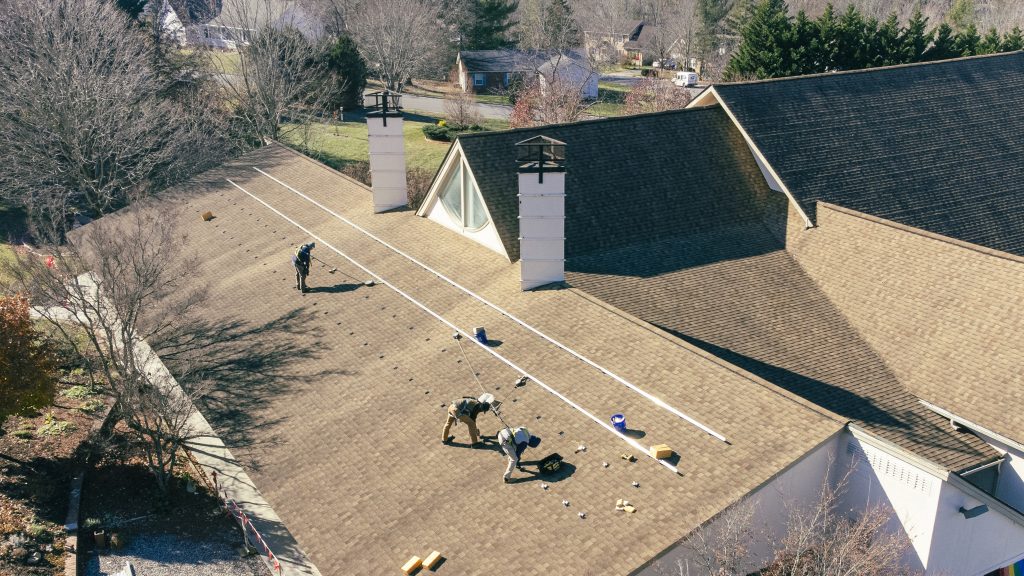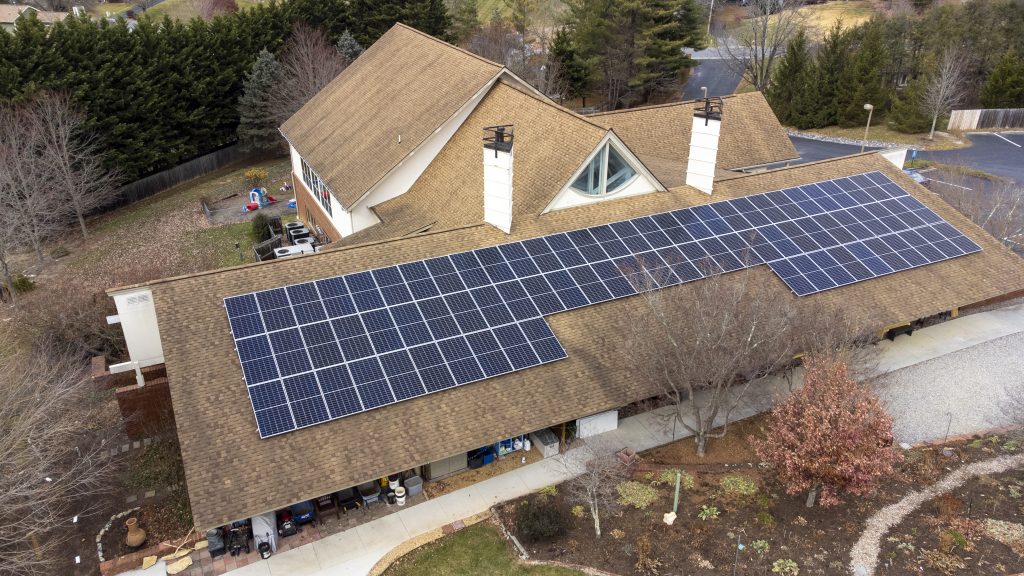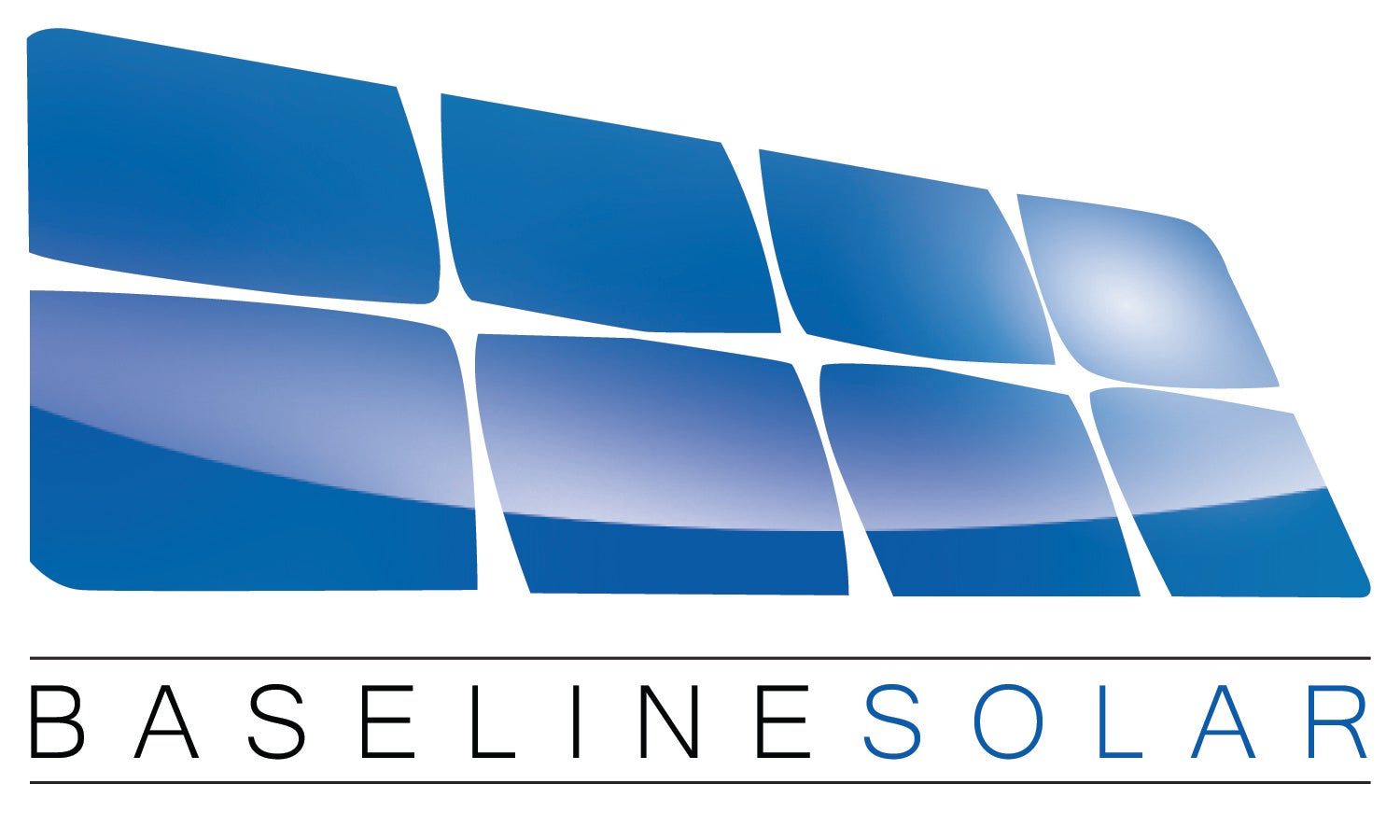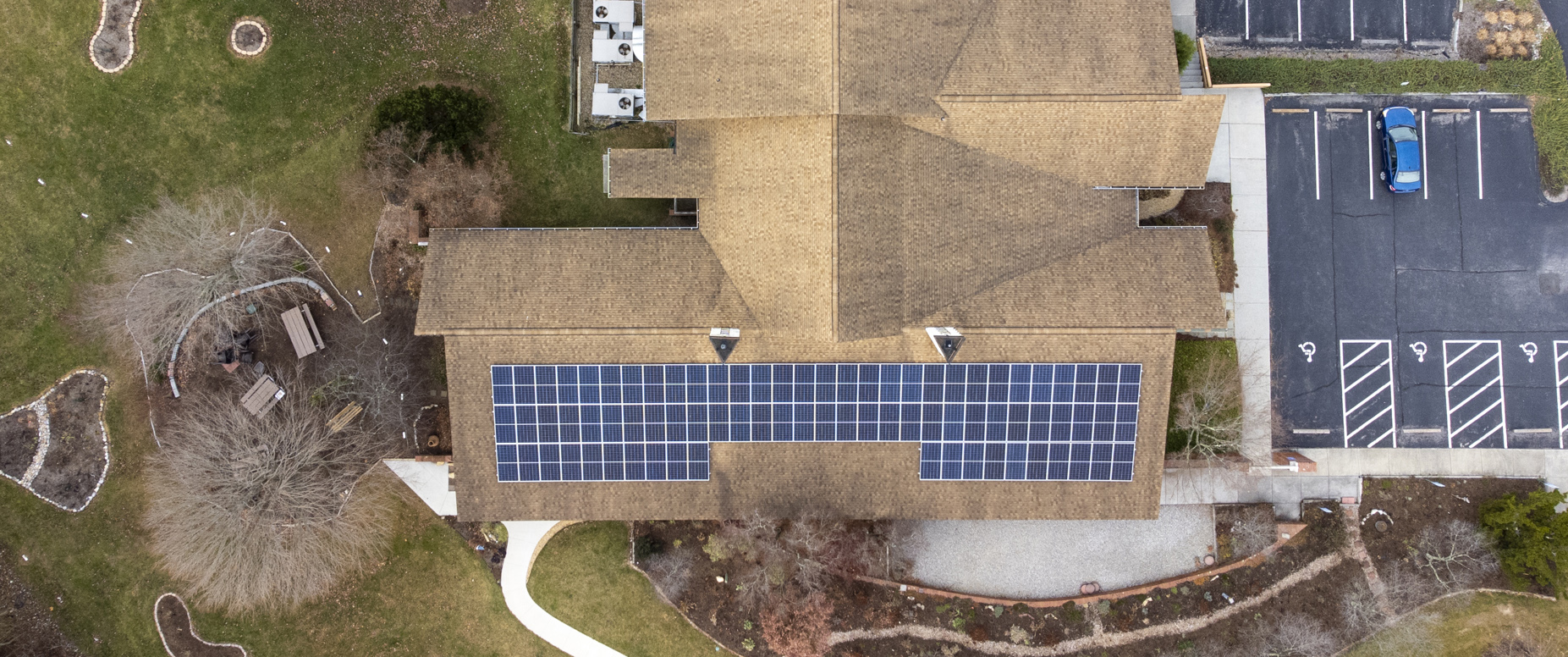Baseline Solar and Blacksburg’s Unitarian Universalist Congregation form a first-of-its-kind partnership in the New River Valley.
For years, the environmental justice committee at Blacksburg’s Unitarian Universalist Congregation struggled with a tricky bit of cognitive dissonance: Mitigating climate change was one of the group’s main priorities. Yet, every time they flicked the lights on at their church, the nearby power plant gobbled a bit more coal. “Moving the church toward solar energy was something we really wanted to do for a really long time,” says Kimberly Homer, who sits on the environmental justice committee.
Finally, in November of 2021, Homer’s hope manifested: Baseline Solar installed an 80-panel on the building’s sunny, south-facing roof. Making the installation possible was a unique, first-of-its-kind partnership between the Unitarian Universalist Congregation and Baseline Solar.

For years, investing in solar energy has been difficult for non-profits. While tax rebates offset the costs of new installations for homeowners and for-profit companies, tax-exempt organizations, like churches, miss these benefits. In 2017, the UUC tried to find a workaround by setting up an LLC. “We have a member who is an economics professor at Tech, and we put together this elaborate plan where members bought shares,” remembers Reverend Pam Philips, who leads the church. Eventually, parishioners decided the idea was too complicated to pull off.

But then, in 2020, the Virginia legislature recognized that many tax-exempt organizations were financially blocked from solar, slowing the state’s progress towards producing net-zero emissions by 2045. The Assembly moved to introduce something called “Power Purchase Agreements (PPAs).” These agreements allow a non-profit, which can’t benefit from tax breaks, to partner with a private business, which can. The for-profit company buys and installs the panels on the roof of the not-for-profit entity, eating the up-front cost. It then owns the panels and the power generated. The not-for-profit purchases power from the company that owns the panels–which is how the for-profit recoups its investment.
In the case of UUC, Baseline Solar became the church’s partner in its Power Purchase Agreement. “They essentially are our power company now,” says Reverend Philips. Forming this partnership allowed the UUC to avoid the $80,000-$90,000 cost involved with an 80-panel installation. Baseline also helped the church navigate an in-depth energy audit, ensuring the building used every kilowatt wisely. The audit found waste in the HVAC unit and in some of the light fixtures. Both have since been rectified, says Reverend Philips, adding, “Success breeds more success. It has really encouraged us to use less energy.”
Because the Unitarian faith sees itself as an inclusive community, church leadership always brings big changes up for a vote. “I thought, oh, everyone is going to rubber-stamp it,” says Reverend Philips, about presenting the idea. But, it wasn’t quite that easy. Some worried technology might progress, and that it was best to wait a few more years, says Homer. Others worried whether prices set by Baseline would be competitive with current coal rates. However, having Baseline Solar’s owner, Patrick Feucht, as a church member went a long way towards seeing this partnership as exactly that—a partnership.
Ultimately, members agreed that engaging in a PPA with Baseline was a unique opportunity to show other churches and not-for-profits a pathway towards utilizing renewable energy, says Rev. Philips. She adds that community leadership has always been a core Unitarian value. And sure, being the first in the area to embrace PPAs took a small leap of faith. But that, says Homer, is exactly what church communities are for.

